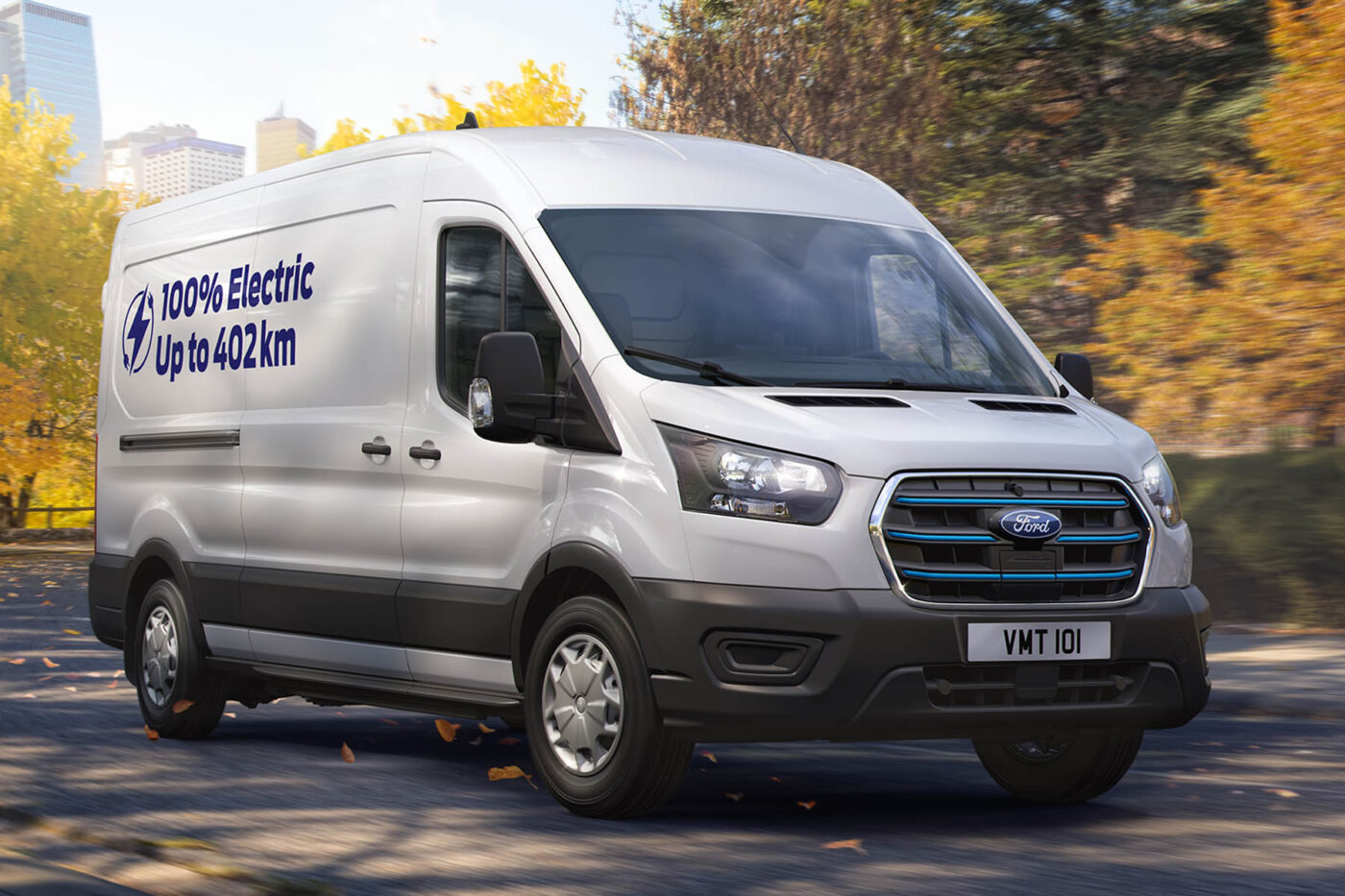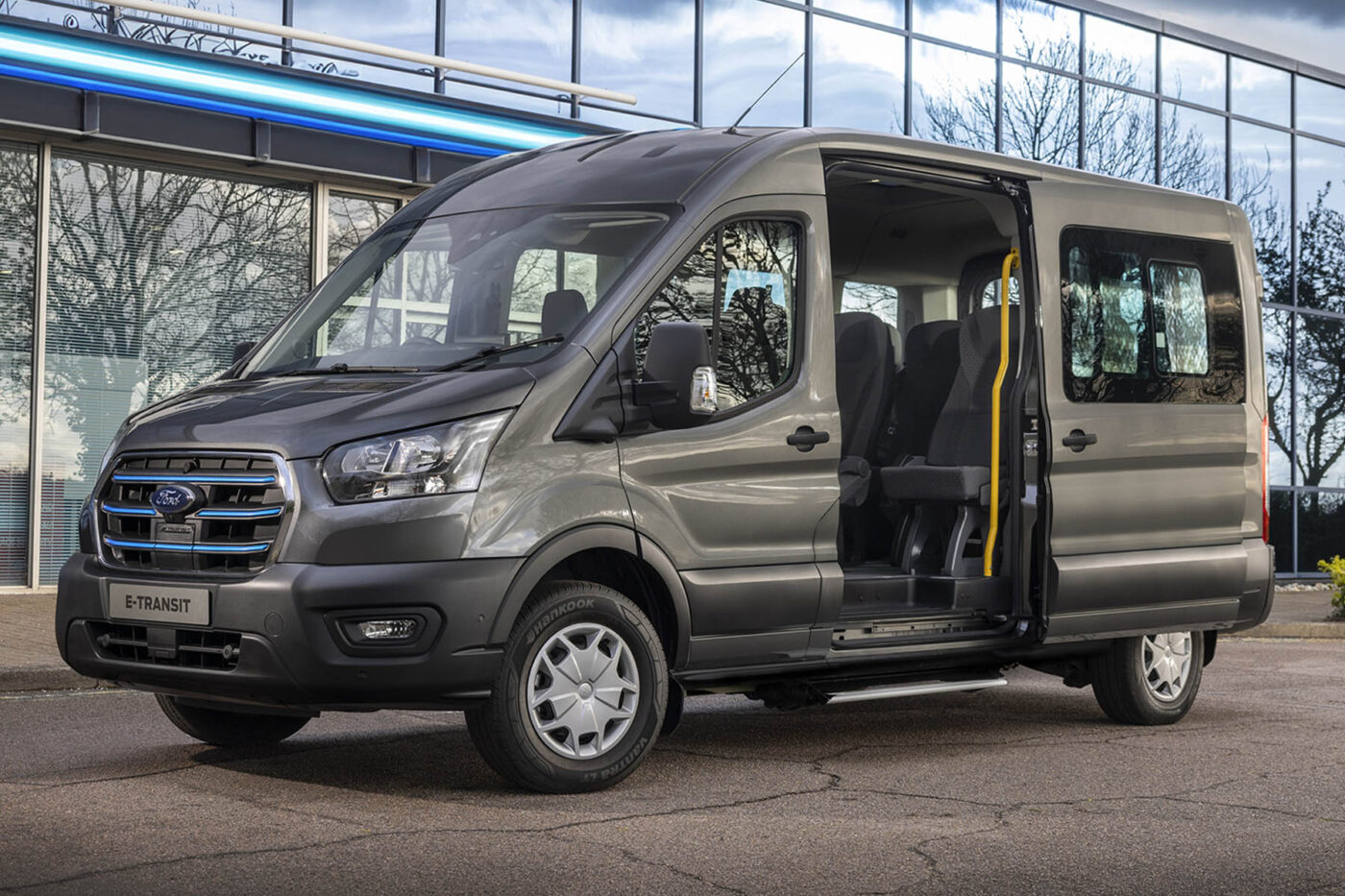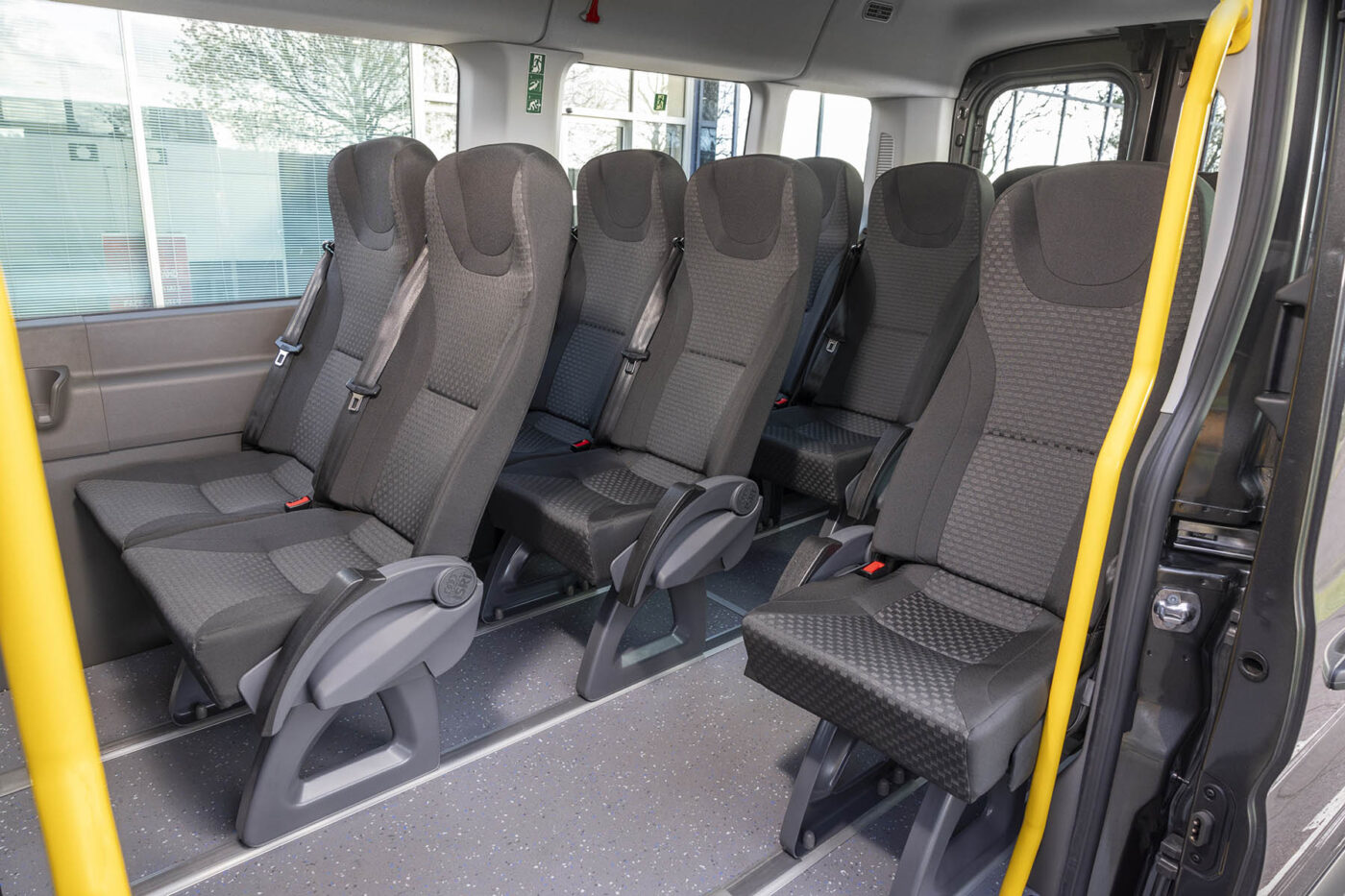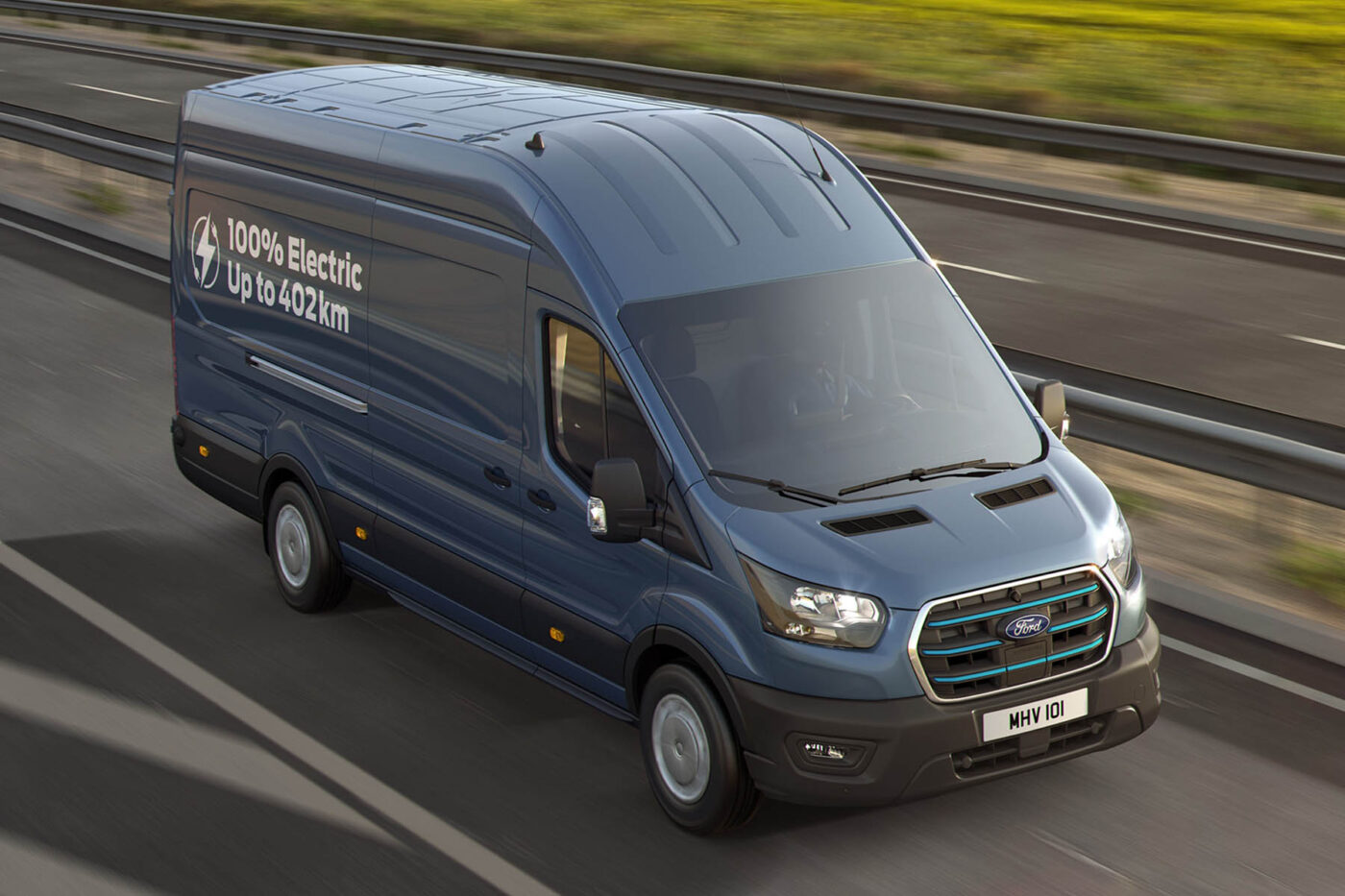Germany: Ford E-Transit with large battery available to order from 64,590 euros
The electric version of the Transit has been sold in Europe since 2022 and comes off the production line at Ford Otosan, the Turkish joint venture between Koc Holding and Ford Motor Company. The van competes in the two-tonne class and currently has a WLTP range of 316 kilometres. That was a decent figure at market launch, but the competition now produces vans with a range of 400 kilometres and more. The new Renault Master E-Tech has a range of 410 kilometres, the new Mercedes eSprinter, which has been available to order since the beginning of the year, has a range of 400 kilometres, and the comparable Stellantis models have a range of 420 kilometres.
Ford is now following suit and is adding an E-Transit version to its range with a range increase of around 27 per cent: thanks to its 89 kWh net energy content, the electric transporter can travel up to 402 kilometres on one charge. For comparison, the previous series model with a usable battery capacity of 68 kWh achieves the aforementioned 316 kilometres but will continue to be offered as an alternative with a smaller range but more payload.
And what does the large battery cost? As a panel van, prices for the Long Range version start at 78,528.10 euros gross or 65,990 euros net in Germany, and as a chassis at 76,862.10 euros gross or 64,590 euros net. That puts the prices roughly 4,000 euros above the price tag of the entry-level model with a small battery (61,590 euros net for the panel van, 60,790 euros net for the chassis). The first units of the longer-range E-Transit should be delivered next spring. At least, that was the schedule outlined at the presentation of the model in spring 2024.




But on to the new van variant: The long-range version of the E-Transit will not only go further thanks to its larger battery. According to Ford, a heat pump with vapour injection, which will be fitted as standard in the smaller one-tonne Ford E-Transit Custom van, also plays a part in the larger radius. Ford has also made changes to the charging capabilities of the electric Transit. The version with the 89-kWh can charge with up to 22 kW AC instead of 11 kW, reducing the charging process to 100% to six hours. At the same time, Ford is improving the DC fast-charging capacity from the current 115 to 180 kW so that a charging process from 10 to 80 per cent battery charge level will soon only take around 28 minutes (previously 37 minutes). There are no changes to the motorisation; the model continues to offer a choice of 135 or 198 kW.
Of course, what is essential for commercial customers is what the change means for model selection, payload and towing capacity. According to Ford Pro, the longer-range E-Transit will be available in several model variants, “including versions with the additional wheelbases L3 and L4, the panel van version with single and crew cab as well as chassis with gross vehicle weights of 3.5 to 4.25 tonnes.” Ford puts the maximum payload of the panel vans at up to 1,429 kilograms and that of the chassis at up to 1,783 kilograms. Given the greater battery weight, this is lower than the figures for the E-Transit, launched in 2022. The manufacturer puts the maximum load compartment volume at 15.1 cubic metres. The towing capacity remains identical at up to 750 kilograms. As an option, the electric ‘Long-Range’ E-Transit offers a V2L connection with 2.3 kW to supply external devices.
Ford recently boasted that the E-Transit will have almost five times as many European customers in 2023 as the next best competitor. Market share: a good 55 per cent. To not maintain its pole position, the manufacturer thus wants to catch up in terms of range with the E-Transit, albeit somewhat later than the competitors mentioned above. That is also necessary, as the ICCT determined that more Iveco eDaily vehicles were sold in the EU than Ford E-Transit for the first time in the third quarter. The next six months will show whether there really is less interest in the model or whether customers are simply waiting for the longer-range E-Transit.
media.ford.com (in German)




0 Comments